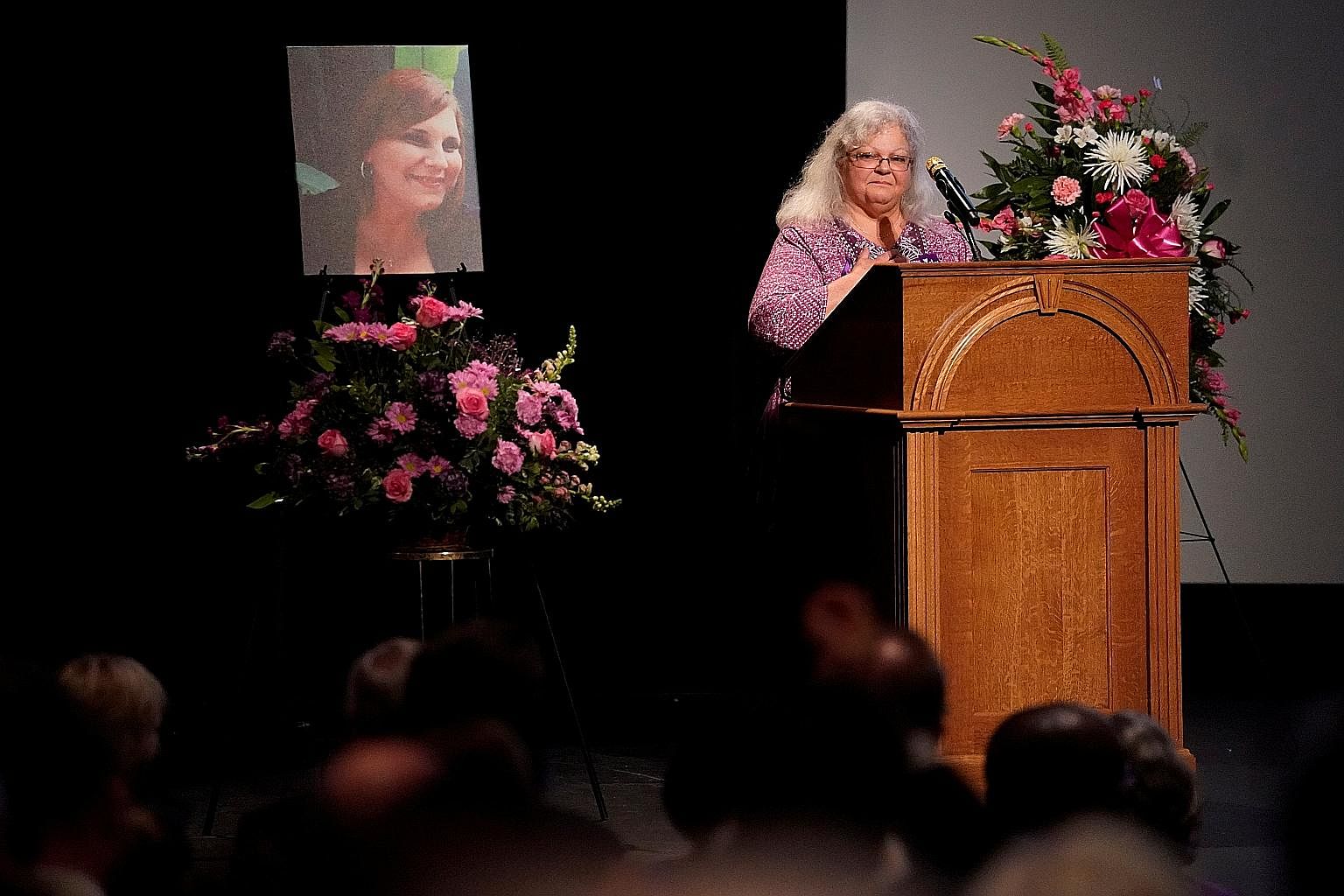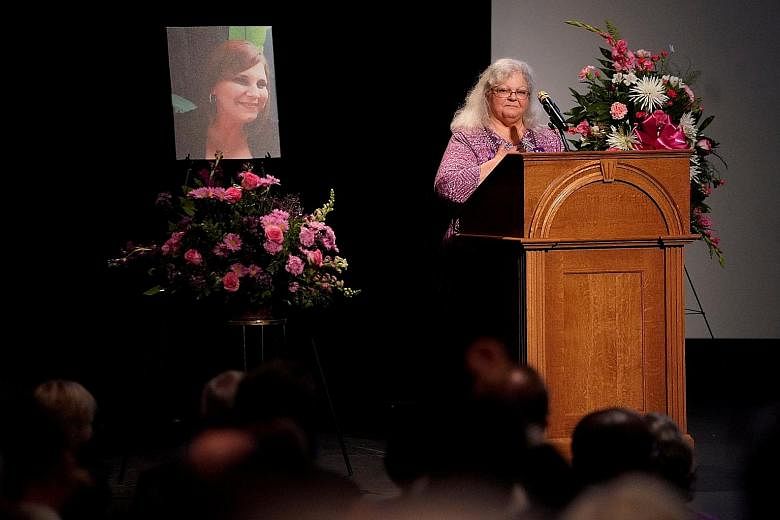Amid fears that newly emboldened white supremacism may fuel an escalating conflict following the violence in Charlottesville, two former Republican presidents have joined a mounting chorus of outrage.
Americans must "reject racial bigotry, anti-Semitism, and hatred in all forms", Mr George H. W. Bush and his son, Mr George W. Bush, said. Their joint statement came a day after President Donald Trump appeared to put white supremacists and leftists on the same moral plane in remarks that were condemned by liberals and welcomed by white supremacist groups.
Meanwhile, in Baltimore, Maryland, the authorities pulled down four statues of confederate figures, while in Virginia, Governor Terry McAuliffe called for all public confederate statues to be removed and relocated as they were a "barrier to progress, inclusion and equality".
Mr Richard Cohen, president of the Southern Poverty Law Centre, said: "In the wake of deadly violence in Charlottesville, cities around the country are questioning why in a nation dedicated to equality for all, we continue to celebrate and memorialise the Confederacy."
The Charlottesville authorities, activists and analysts alike are still struggling to come to terms with last Saturday's events, in which liberal and leftist groups battled racist white supremacists, one of whom drove into a crowd, killing a woman.
"This is alarming; the assumption was that we were well beyond this," University of Georgia political science professor Charles Bullock told The Straits Times.
But several analysts noted the events of the previous Friday evening were even more chilling.
That night, white supremacists marched openly on the campus of the University of Virginia, holding flaming torches and chanting racist and anti-Semitic slogans. The marchers were not stereotypical white rural Trump supporters; many were middle-class young men, and their faces were uncovered.

"The white supremacists on Saturday were obvious," a political analyst who asked not to be named told ST. "But those who marched on Friday were people you might one day sit next to in a bar, people who might one day be in leadership positions," he added.
"There is very little question that some of the rhetoric surrounding the 2016 election emboldened white supremacists," Cornell University professor of American studies Glenn Altschuler told ST. "They feel legitimised, they feel there is sympathy for them in the corridors of power."
So-called "alt-right" groups have a number of rallies planned in the days ahead, but it is uncertain how many will actually be held as city authorities learn lessons from the mayhem in Charlottesville.
But liberal and leftist groups also want to tear down statues dedicated to confederate heroes - leaders and generals who led the south in the US' 1861-1865 civil war.
The war ended in the defeat of the Confederacy and abolition of slavery, though the African-American minority still had to wage a long and sometimes bloody struggle a century later for full civil rights.
"There is a danger that there will be more demonstrations and more confrontations," Prof Altschuler said. "This will be a significant challenge to law enforcement."
Still, radical white supremacists are thought to be a minority.
"Most Trump supporters are not white supremacists, and they will have to distinguish themselves from those who are," University of Texas professor of history and author H. W. Brands said in an e-mail.
The analyst who asked not to be named said: "We all know it has always been there. It's just that nobody has tapped into it before.
"The Republican Party did not understand how deep this was. Trump tapped into something he can't tap out of."
WATCH THE VIDEO
Trump disbands CEO councils after resignations. str.sg/4rov


